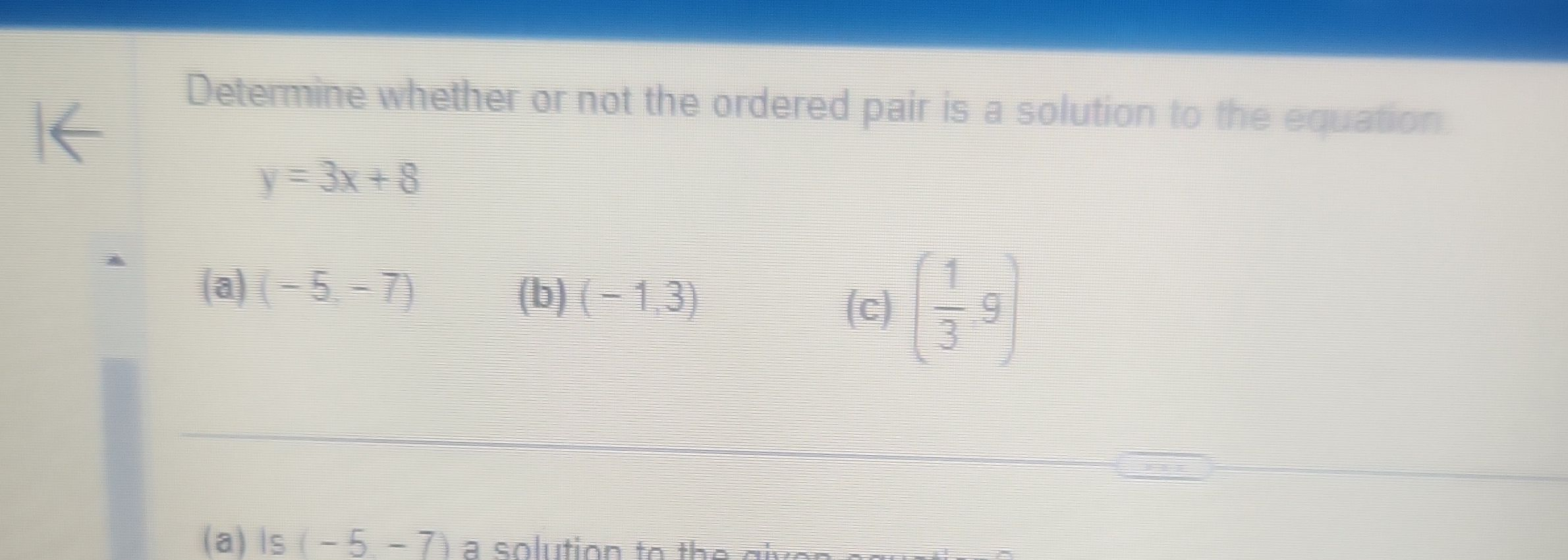Full solution
Q. Determine whether or not the ordered pair is a solution to the equation(a) (b) (c)
- Given Equation: We are given the equation and we need to check if the ordered pairs , , and are solutions to this equation. We will substitute the -value from each ordered pair into the equation and check if the corresponding -value satisfies the equation.
- Ordered Pair : For the ordered pair , substitute into the equation . Check if this is equal to the -value from the ordered pair. Since the values match, is a solution to the equation.
- Ordered Pair : For the ordered pair , substitute into the equation .Check if this is equal to the -value from the ordered pair.Since the values do not match, is not a solution to the equation.
- Ordered Pair : For the ordered pair , substitute into the equation . Check if this is equal to the -value from the ordered pair. Since we do not have a specific value for , we cannot determine if is a solution unless .
More problems from Evaluate expression when two complex numbers are given
QuestionGet tutor help
QuestionGet tutor help

